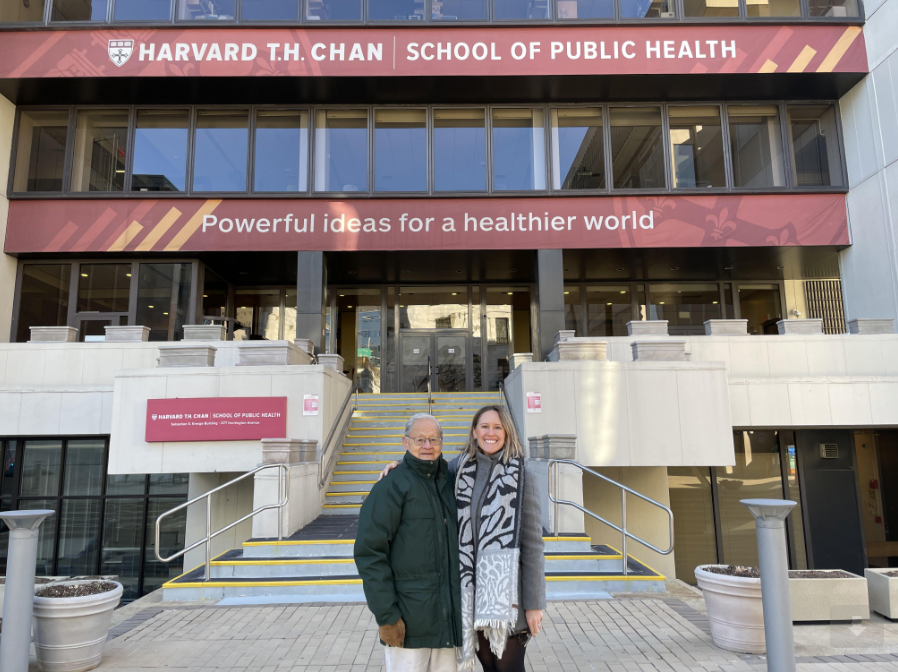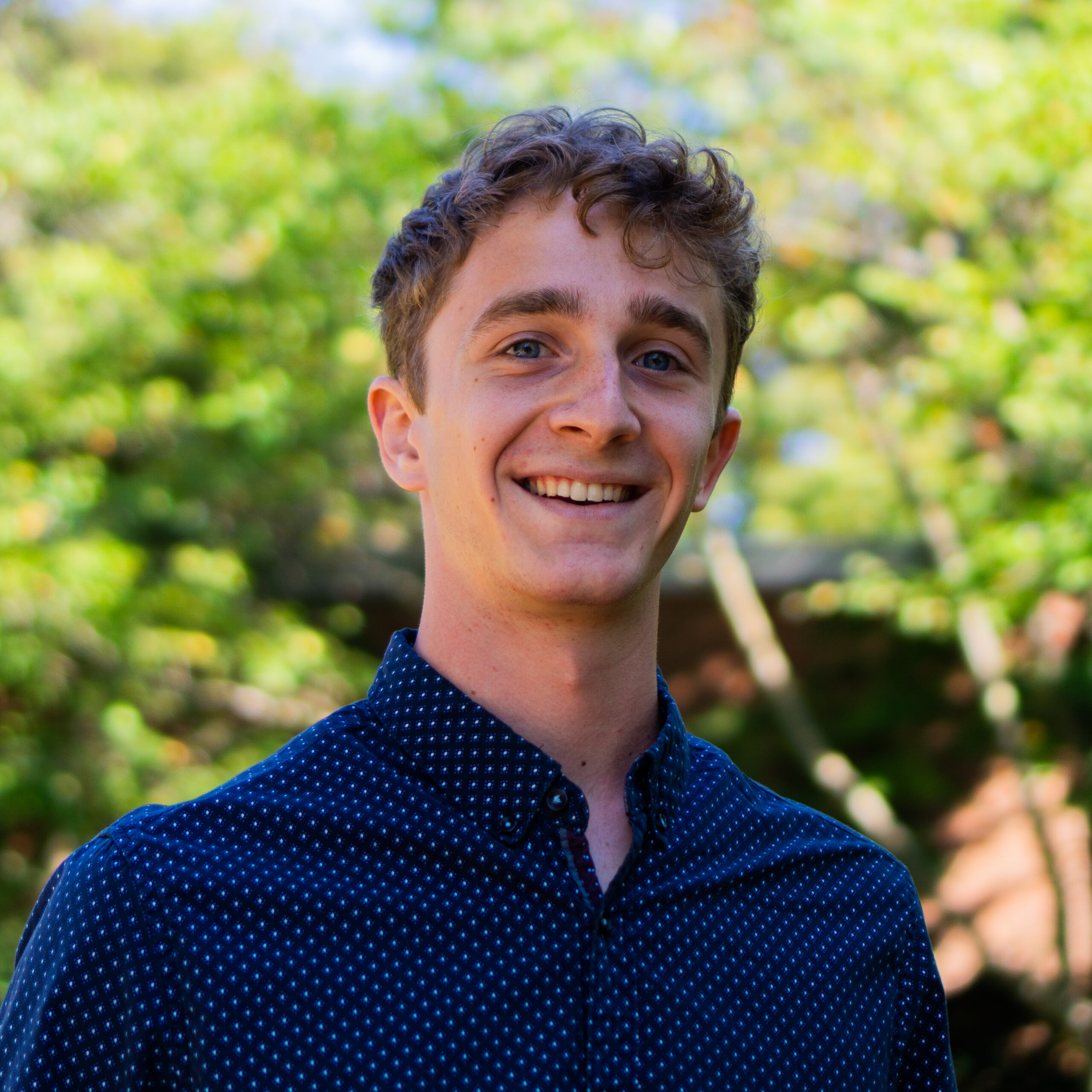For Yudiria Garcia, studying virtually at Harvard University last summer was “overwhelming at first.”
“Imposter syndrome was real,” Garcia said. “At the beginning, I really felt like I didn’t belong at Harvard.”Garcia was one of nine participants from across the country who were accepted into Fostering Advancement Camp; Careers through Enrichment Training in Science (FACETS), a six-week program focused on research, professional development and networking. The Office of Diversity and Inclusion within Harvard’s T.H. Chan School of Public Health hosted the program.
After hearing about the opportunity from Brianne Brenneman, public health program director and assistant professor of public health, Garcia, a senior public health major, applied and was accepted.
“It wasn’t a difficult application,” Garcia said. “It was free to apply, and we actually got paid a stipend of $2,000 for the program.”
This past summer, the program was made virtual given the lingering effects of COVID-19, so Garcia participated from the laptop in her house in Goshen. That aspect made for “long days” on the computer, Garcia said. Next year, though, Brenneman expects it to be a residential program on Harvard’s campus in Boston.
Garcia said that the FACETS program had professors present on imposter syndrome, and both the name of the university and the accomplishments of her colleagues became “less intimidating after the first week.”
From the very beginning, students were able to address any feelings of inadequacy and hear the research that makes clear how common those feelings are.
Garcia worked on three main projects over the summer. She researched healthcare disparities in India, inequalities in the Department of Veterans Affairs affecting veterans’ mental health treatment and the higher mortality of pregnant Black women compared with white women.
On a typical day, Garcia said, their group would start at 10 a.m., checking in with the program director on how their classes and final project were going (they started work on their final project during the very first week). After that, she had daily classes on public health: careers, social-economic factors and preventative measures.
The research Garcia did on her three main projects was largely separate from the classes. In the research, she was mainly “adding articles to [existing lists for] projects that had already been started,” Garcia said.
The final project was presented in a symposium by teams of three people, as well as a professor. Garcia’s final project was on India’s healthcare disparities, and she focused on how lack of education can lead to vaccine deficiencies and increased mortality in children.
One thing that helped Garcia’s imposter syndrome subside was the cohort of eight other students in the program. The FACETS program aims to serve underrepresented students, so Garcia said that “it was nice” to be with other students of color.
“Having that shared background,” she said, “really helped me feel like I belonged.”
Also contributing to Garcia’s increased sense of belonging was the mentorship program. Once a week, she met with a mentor who had done FACETS in the past, and Harvard gave them UberEats vouchers to have a meal while they chatted about how the program was going.
Garcia’s mentor was Lisette Martínez, who had already moved back to Colorado to work as a research consultant after finishing her Master of Science program at Harvard. Garcia said that “we could text each other whenever we needed — if we wanted her to check our resume … or presentation … she would help us with edits and check in throughout the program.”
Garcia will not do FACETS again due to graduation, but Brenneman hopes that “at least one GC student a year will have this opportunity.”
Garcia started out at GC as a nursing major but was quickly attracted to the larger scale of public health. “Instead of having the one-on-one work with a patient in nursing … public health implements changes that help make a better community,” she said.
Garcia will graduate in the fall of 2023 and has found her “career options open up” due to the FACETS program. “I’m looking to find some way to help populations at a larger scale … [whether that is] in a health department, hospital or consulting,” she said.
Garcia said that she does want to do graduate school, but probably “a couple years after [graduating college],” and plans to get a job in Goshen in the meantime.
The partnership between Harvard and Goshen College started with Bill Hsiao, an emeritus professor of economics at Harvard’s school of public health. Hsiao’s late wife, Ruth, was a GC graduate, and he reached out to Brenneman for a way to find opportunities for GC students to study at Harvard.
Brenneman said that when she went to Boston with her public health students participating in Harvard’s J-Term last year, she told Hsiao that she would stay in a hotel, to which he responded, “absolutely not — you’re welcome in my house.”
Brenneman said that Hsaio’s desire to connect GC and Harvard was profound, reflected in his generosity with both finances and with time.
Brenneman’s connection with Hsaio did not specifically help Garcia in getting into the program, but Brenneman said that it’s always good for those reading the applications to have connections and a picture of GC in their mind.
She also added that the FACETS program director was impressed with GC’s interdisciplinary focus and public health program as a whole.
Garcia agreed with the strength of GC’s public health program and said that classes here helped “set up the base knowledge of how to interpret academic information,” and that “Brianne’s guidance has been amazing.”
Brenneman said that “it’s through trusting relationships, and the generous people like Bill, that help make partnerships between Goshen and Harvard possible.”




